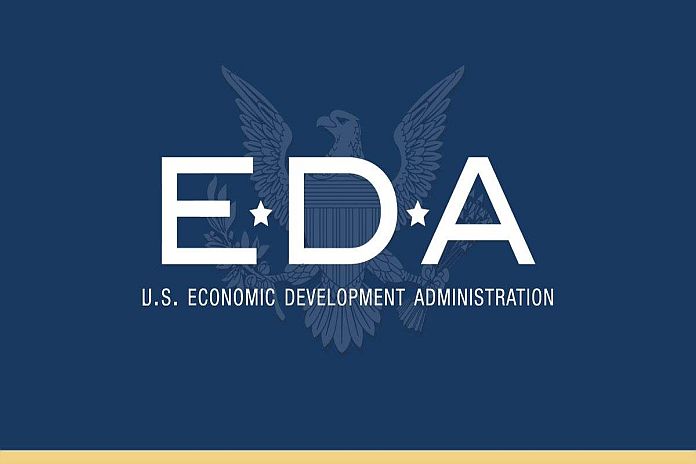WASHINGTON, USA – The US Economic Development Administration (EDA) announced that it has updated its investment priorities.
EDA’s investment priorities provide an overarching framework to ensure that our investment portfolio ranging from planning to infrastructure construction contributes to local efforts to build, improve, or better leverage economic assets that allow businesses to succeed and regional economies to prosper and become more resilient.
The updated investment priorities support the US Commerce Department’s agenda, which is driven by four pillars to increase American competitiveness:
- Revitalizing US manufacturing and developing advanced industries;
- Building a 21st century workforce;
- Maintaining leadership in global innovation;
- Promoting American businesses, at home and abroad.
Notably, ‘Equity’ has been added to the top of the investment priority list. EDA is committed to working with populations and underserved communities that have been denied a full opportunity to participate in aspects of economic prosperity in the past.
Understanding that innovation is the backbone of our economy and that we must invest to grow the businesses of the future, including those that address climate change, Technology-based economic development and Environmentally-Sustainable Development have been added as priorities. And, coal and power plant communities are specifically addressed under the Recovery & Resiliency priority. EDA’s commitment to supporting strategies that advance workforce development, manufacturing, and export/foreign direct investment strategies remains unwavering.
EDA’s updated investment priorities are:
- Equity: Economic development planning or implementation projects that advance equity across America through investments that directly benefit 1) one or more traditionally underserved populations, including but not limited to women, Black, Latino, and Indigenous and Native American persons, Asian Americans, and Pacific Islanders or 2) underserved communities within geographies that have been systemically and/or systematically denied a full opportunity to participate in aspects of economic prosperity such as Tribal Lands, Persistent Poverty Counties, and rural areas with demonstrated, historical underservice. For more information on these populations and geographies:
- Recovery & Resilience: Economic development planning or implementation projects that build economic resilience to and long-term recovery from economic shocks, like those experienced by coal and power plant communities, or other communities impacted by the decline of an important industry or a natural disaster, that may benefit from economic diversification-focused resilience.
- Workforce Development: Economic development planning or implementation projects that support workforce education and skills training activities directly connected to the hiring and skills needs of the business community and that result in well-paying, quality jobs.
- Manufacturing: Economic development planning or implementation projects that encourage job creation, business expansion, technology and capital upgrades, and productivity growth in manufacturing, including efforts that contribute to the competitiveness and growth of domestic suppliers or to the domestic production of innovative, high-value products and production technologies.
- Technology-Based Economic Development: Economic development planning or implementation projects that foster regional knowledge ecosystems that support entrepreneurs and startups, including the commercialization of new technologies, that are creating technology-driven businesses and high-skilled, well-paying jobs of the future.
- Environmentally-Sustainable Development: Economic development planning or implementation projects that help address the climate crisis including through the development and implementation of green products, processes (including green infrastructure), places, and buildings.
- Exports & FDI: Economic development planning or implementation projects that enhance or build community assets to support growth in US exports or increased foreign direct investment.
EDA plays a vital role in advancing the mission of the Commerce Department by supporting community-led economic development strategies designed to create the conditions for economic growth and opportunity.
These updated investment priorities will allow us to focus our efforts to ensure that American communities are in position to remain competitive on the global stage.





